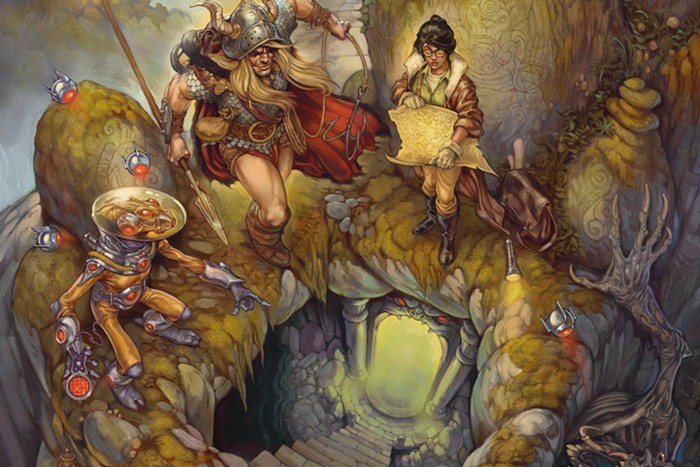I hadn't been to a Seattle Arts & Lectures lecture in a long time. I missed Azar Nafisi's lecture two months ago, Paul Auster's lecture in January, Alexander McCall Smith's lecture in November, Simon Winchester's lecture in October, and Cynthia Ozick's lecture in September. Except for Peter Matthiessen's lecture last week, I missed Seattle Arts & Lectures' entire 2005–2006 series. I used to see everything.
Matthiessen was introduced by Seattle Arts & Lectures Executive Director Margit Rankin, who has an off-putting style of introducing writers. Rankin is the reverent, pleasant, intelligent leader of a well-respected (and well-funded) literary arts organization, but onstage she is hyperreverent, enunciating each word as if she's carving it out of cantaloupe. She introduces writers like a demure paleontologist introducing the remains of a very exciting dinosaur. Her manner is unchanging: obsequious awe. Which seems dishonest, because there's no way Rankin is obsequiously in awe of every writer out there, and disconcerting, because it makes writers (even young ones) seem fossilized. Granted, I might not fit the demographic Seattle Arts & Lectures has in mind—a quick scan of Benaroya Hall at any given event proves that the people who attend these lectures are, for the most part, fossils—but I never felt out of place when Rankin's predecessor, Matt Brogan, always respectful but never faking it, was doing the introductions. (Full disclosure: I worked in the Seattle Arts & Lectures office a few years ago, three months under Brogan's leadership, three month's under Rankin's. They are both excellent administrators.) But happily, in her opening remarks, Rankin announced two of next year's lecturers, New York Times columnist Frank Rich and Angela's Ashes author Frank McCourt, as well as special events with Stephen King and children's book author Eric Carle, all of which sound awesome. Especially Frank Rich.
Then Peter Matthiessen came out. Now here's a fossil. In the 1950s, this man founded the Paris Review with George Plimpton and Harold Humes (both now dead). Matthiessen talked about his books (the Killing Mister Watson trilogy, The Snow Leopard) and told stories about his illustrious friends, among them New Yorker editor William Shawn and migrant-rights crusader César Chávez (also both now dead). Every other anecdote ricocheted brilliantly into a rant against Republicans who want to drill in the Arctic National Wildlife Refuge. "Anyway, I keep slipping off topic," he apologized repeatedly, but his ostensible topic was the difference between fact and fiction, which I'm guessing everyone was already pretty clear on, so no one minded. (Francine Prose gave a lecture under that exact pretense last year. It's a shame, since writers get paid well for these talks, that they're not better directed.)
"Things are very, very funny in a grotesque sort of way," Matthiessen observed toward the end of his lecture. "I hope I'll laugh all the way to the box." Truth is, he didn't seem like a fossil at all. He seemed like a dude. I wanted to get him out of there and buy him a beer.



















